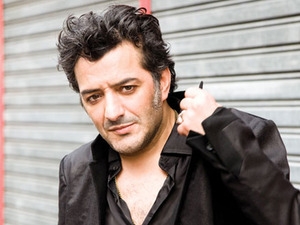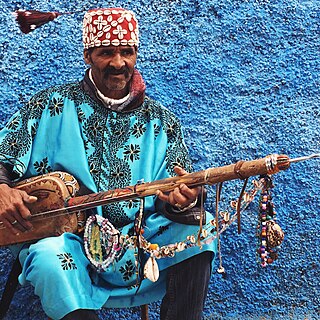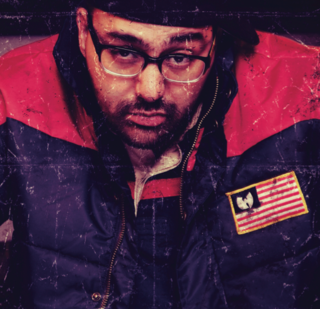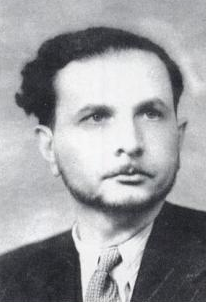
Yusuf Islam, commonly known by his stage names Cat Stevens, Yusuf, and Yusuf / Cat Stevens, is a British singer-songwriter and multi-instrumentalist. His musical style consists of folk, pop, rock, and, later in his career, Islamic music. He returned to making secular music in 2006. He was inducted into the Rock and Roll Hall of Fame in 2014.

Arabic music or Arab music is the music of the Arab world with all its diverse music styles and genres. Arabic countries have many rich and varied styles of music and also many linguistic dialects, with each country and region having their own traditional music.

Rachid Taha was an Algerian singer and activist based in France described as "sonically adventurous". His music was influenced by many different styles including rock, electronic, punk and raï.

Islamic music may refer to religious music, as performed in Islamic public services or private devotions, or more generally to musical traditions of the Muslim world. The heartland of Islam is the Middle East, North Africa, the Horn of Africa, West Africa, Iran, Central Asia, and South Asia. Due to Islam being a multi-ethnic religion, the musical expression of its adherents is vastly diverse. Indigenous traditions of various part have influenced the musical styles popular among Muslims today.
Amazigh music refers to the musical traditions of the Imazighen, an ethnic group native to the Maghreb, as well as parts of the Sahara, Nile Valley, West Africa. Berber music varies widely across North-West Africa and some of the best known varieties can be found in Shilha music from Morocco; Kabyle, Chawi and Gasba music from Algeria; and Tuareg from Burkina Faso, Niger and Mali.

Gnawa music is a body of Moroccan and West African Islamic religious songs and rhythms. Its well-preserved heritage combines ritual poetry with traditional music and dancing. The music is performed at lila, communal nights of celebration dedicated to prayer and healing guided by the Gnawa maalem, or master musician, and their group of musicians and dancers. Though many of the influences that formed this music can be traced to West Africa, its traditional practice is concentrated in Morocco. Gnawa music has spread to many other countries in Africa and Europe, such as France.
Abu l-Hasan 'Ali Ibn Nafi', better known as Ziryab/Zeryab or Zaryab ;, was a singer, oud player, composer, poet, and teacher who lived and worked in Iraq, Northern Africa, and Andalusia of the medieval Islamic period. He was also known as a polymath, with knowledge in astronomy, geography, meteorology, botanics, cosmetics, culinary art and fashion. His nickname Ziryab comes from the Persian word for jay-bird زرياب, pronounced "Zaryāb"; he is also known as Mirlo ('blackbird') in Spanish. He was active at the Umayyad court of Córdoba in Islamic Iberia. He first achieved fame at the Abbasid court in Baghdad, Iraq, his birthplace, as a performer and student of the great Persian musician and composer, Ishaq al-Mawsili. The Mawsili family was originally from the city of Kufa, Iraq.

Tarik Azzougarh, better known as his stage name Cilvaringz, is a Dutch-Moroccan record producer, rapper, and artist manager from Tilburg, North Brabant. He is associated with the Wu-Tang Clan and is best known for conceptualizing and producing the world's most expensive work of music, Wu-Tang Clan's Once Upon a Time in Shaolin.
Mizrahi music refers to a music genre in Israel that combines elements from Europe, the Middle East and North Africa; and is mostly performed by Israelis of Mizrahi Jewish descent. It is usually sung in Modern Hebrew, or literary Hebrew. The literal translation of Mizrahi from Hebrew is "Eastern".

The Message is a 1976 Islamic epic drama film directed and produced by Moustapha Akkad, chronicling the life and times of the Islamic prophet Muhammad through the perspective of his uncle Hamza ibn Abdul-Muttalib and adopted son Zayd ibn Harithah.

Muhammad Allal al-Fassi, was a Moroccan politician, writer, poet and Islamic scholar.

Berard of Carbio, O.F.M., was a thirteenth-century Franciscan friar who was executed in Morocco for attempting to promote Christianity. He and his companions, Peter, Otho, Accursius, and Adjutus, are venerated as saints and considered the Franciscan Protomartyrs. Expelled from the kingdom twice, they returned each time and continued to preach against Islam. In anger and frustration, the king finally beheaded them.
Arabic hip hop is hip hop music and culture originating in the Arabic-speaking world. It is performed in Arabic, English, French, Berber languages (Tamazight), and local Arabic dialects. Like most artists of the genre, the artists from the Arab world are highly influenced by American culture.

André Azoulay is a Moroccan Jewish senior adviser to king Mohammed VI of Morocco. He previously advised Mohammed's father, king Hassan II. He currently presides over the Anna Lindh Euro-Mediterranean Foundation for the Dialogue Between Cultures, based in Alexandria, Egypt. He is also President of the Executive Committee of the Foundation for the Three Cultures and the Three Religions, based in Seville, Spain, a founding member of the C-100 Davos Forum for the Dialogue of Civilisations and religions, and was formerly Executive Vice-President of the BNP Paribas, Paris. His daughter is UNESCO Director-General Audrey Azoulay.

Hassan Hakmoun is a Moroccan musician who specializes in the Gnawa style.
Yosef "Jo" Amar was a noted Moroccan-Israeli singer and hazzan.

Omar Ould Hamaha was an Islamist militia commander from Northern Mali. During the 2012 Northern Mali conflict he became known alternatively as the spokesman and chief of staff for both Ansar Dine and Movement for Oneness and Jihad in West Africa (MOJWA), militant groups associated with Al-Qaeda in the Islamic Maghreb (AQIM).

OUBEL or Oussama Belhcen is a Moroccan pop and R&B singer, songwriter and producer. He started his career in 2006 and sings in Arabic, English and French. After a short career with the Moroccan urban hip hop group MafiaFlow, he has had a solo career with three albums (Ana Wnti, Ryan Belhsen and Dayman, an EP and a number of singles. He is signed to New Lixus Entertainment label.
Seifallah Ben Omar Ben Hassine, known as Abu Ayyad al-Tunisi, was a Tunisian Islamic militant and the founder and leader of Ansar al-Sharia (Tunisia).
Mohamed Benomar Ziani is a Moroccan musician specialized in the Aita and Chaabi music.













